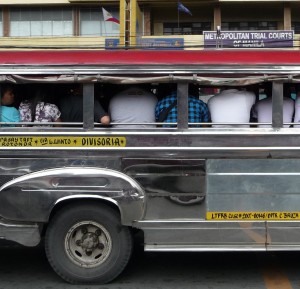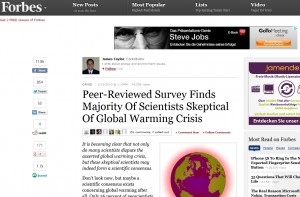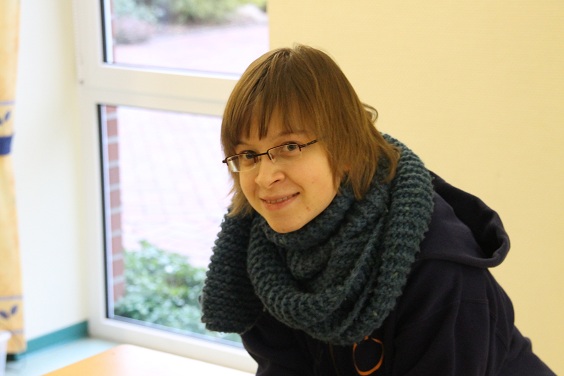A hot ride in Manila
 If someone has to use public transport in Manila, people most likely go by Jeepney. It‘s a typical Philippine transportation. Sometimes it’s extremely crowded, people squeeze in there like sardines in a can if they have to travel from one to another location. Most of all, the Jeepney is a damn hot ride, especially from an outer perspective. Each one of them is painted in a different way, very often with Christian blessings or something that is kind of a job description of the car‘s owner, „banana dealer“ for example. Some of the custom bodies are decorated with sculpturs, so it‘s possible to meet four big horses sitting on a something that‘s acctually a public transport vehicle. Fantasy has no borders, right?
If someone has to use public transport in Manila, people most likely go by Jeepney. It‘s a typical Philippine transportation. Sometimes it’s extremely crowded, people squeeze in there like sardines in a can if they have to travel from one to another location. Most of all, the Jeepney is a damn hot ride, especially from an outer perspective. Each one of them is painted in a different way, very often with Christian blessings or something that is kind of a job description of the car‘s owner, „banana dealer“ for example. Some of the custom bodies are decorated with sculpturs, so it‘s possible to meet four big horses sitting on a something that‘s acctually a public transport vehicle. Fantasy has no borders, right?
And the number of Jeepneys in Manila is epic. Watching them drive by in the city sometimes feels like visiting a huge street art gallery.
 Historically Jeepneys were American army jeeps left over from Wolrd War II. The word comes from a combination of the words “jeep” and “jitney” – which is something like a cab or bus carrying passengers on a regular route with flexible schedule. Today they are produced on a regular basis.
Historically Jeepneys were American army jeeps left over from Wolrd War II. The word comes from a combination of the words “jeep” and “jitney” – which is something like a cab or bus carrying passengers on a regular route with flexible schedule. Today they are produced on a regular basis.
But: As nice as Jeepney‘s may look the bad they are for the environment, guzzling an amazing lot of gas. So the gouvernment thinks about to at least lower the number of Jeepneys cruising the streets. That good for the environment of course, but it‘s sad for the eye.
Climate Change Denial: Crudely does it
 What is so fascinating about climate change denial is not that it denies climate change, but that it does it so crudely. Last weekend we came across one very fine example that we thought is too good to keep from you, dear readers – even though it is not that recent: In February, the web edition of Forbes magazine ran a piece titled “Peer-Reviewed Survey Finds Majority Of Scientists Skeptical Of Global Warming Crisis”. Really? Finally, a sea change in scientific opinion?
What is so fascinating about climate change denial is not that it denies climate change, but that it does it so crudely. Last weekend we came across one very fine example that we thought is too good to keep from you, dear readers – even though it is not that recent: In February, the web edition of Forbes magazine ran a piece titled “Peer-Reviewed Survey Finds Majority Of Scientists Skeptical Of Global Warming Crisis”. Really? Finally, a sea change in scientific opinion?
Not quite. In fact, not at all. This lazy piece penned by James Taylor, a contributor to Forbes.com, deliberately leaves out the fact that the people surveyed were geoscientists and engineers. Plus, that they are all members of the Association of Professional Engineers and Geoscientists of Alberta, Canada and mostly in the pay of the petroleum industry – the largest employer in the region. It’s like polling the scientific advisers of the tobacco industry on the risks of smoking.
Of course, scientists will always differ on issues, especially important ones like Global Warming. But there is a scientific consensus that human-caused Climate Change is happening. And even if you hate this consensus, it does not go away. Not even if you misrepresent the facts. And to do so in such a crude fashion is just lame. But to insult your readers’ intelligence doesn’t go unpunished: Forbes readers duly tore the piece apart – and provided the details this simulation of “journalism” so conveniently left out. We assume James Taylor didn’t care and was too busy scribbling together his next climate sceptic hit jobs – a look at the Forbes archive of his articles suggests it was not his last one…
Debating Climate Change: The View from Japan
We love to hear how our stories and ideas on climate protection are received in other parts of the world. So when receiving emails from our GLOBAL IDEAS audience, we read their comments with great interest. But there is one who sticks out. Masao Honma from Japan has commented on almost every one of our close to 200 GLOBAL IDEAS reports and background articles. We have collected an impressive amount of messages flying from Masao’s house in Niigata to our Berlin office. Thank you Masao for your constant support and insight! It’s always a pleasure to see your name pop up in our mail accounts! We have asked Masoa Honma for permission to publish some of his comments providing an insight into the climate change debate in Japan.
Green shipping
In one of our animated info films we asked the question “How bad for the environment are cruise ships?” But how is Japan dealing with CO2 emissions from it’s very own shipping industry? Here’s Masao’s take on the issue:
In Japan government organizations are developing “Super Eco Ship” technologies for commercial use – but I think this is too expensive for cargo ships at this stage. [Maybe it’s better] to first change passenger boats into Super Eco Ships. The human load of passenger ships must have great interest in protecting the environment.
Fire fighting to save the climate
In our report on managing wild fires in Brazil, we learned that fire isn’t just destructive – in fact, there are ecosystems that thrive on regular blazes. Japanese farmers also actively make use of fires:
In Japan, some farmers set fire to their meadows at the beginning of the season, to clear dead grass and harmful insects. It is confined to a limited area and watched over by the fire brigade.
People aren’t responsible for climate change
In another text, scientists are countering three of the most common arguments of climate change sceptics. What about climate change scepticism in Japan?
In Japan, climate change scepticism is not so popular in public, even though the people have a high pro-business attitude. One reason may be the optimistic attitude of the Japanese. They don’t oppose mainstream science, but think the effects of climate change [will be felt only] much later. But there are some unignorable signs, even today: last year a tornado hit a town in the area of Tsukuba, not far from Tokyo. In the past, tornadoes used to be very rare in Japan. I myself feel that the weather patterns these years are strange. Denying the facts of climate change is crazy!
Climate champ – ‘Climate change fight will dictate the future’
Do you feel responsible for our future? Are you tired of waiting for a breakthrough at climate conferences? If you are already taking action yourself, you are our ClimateChamp and we want to get to know you! Answer our questionnaire to become a part of our new blog series, take your chance to be nominated as a Climate Champ. This time we feature Mourad Farahat from Cairo.
What is your name? How old are you? And where do you live?
My name is Mourad Farahat, I am 16 and I live in the Cairo suburb of El Tagamoa El Khames.
How does climate change affect your everyday life in your community?
Climate change has had several adverse effects on the Egyptian community, and could lead to damage beyond repair. For example, it has caused an ever-increasing amount of problems in the food sector, as food production is not able to keep up with the increase in the Egyptian population. The effects are amplified by the incessant erosion of the Nile Delta. As seawater levels rise, the once fertile Nile Delta begins to absorb saltwater instead of freshwater, making it infertile. This has led to rising food and water prices, which widens the gap between rich and the poor.
What prompted you to get involved in fighting climate change?
There was no specific trigger which encouraged me to start fighting climate change. Rather, it was the fact that the fight against climate change has given me the opportunity of a lifetime – to be part of a cause which will dictate the future.
How exactly do you fight climate change?
I fight climate change in any legal way I can. I have joined an organization called youthinkgreen, which has given me a perspective on the fight against climate change on a global scale. And I am a part of a local grassroots division of youthinkgreen in Egypt which promotes green action, most notably a recycling project which we have successfully initiated in our school and are hoping to expand. It may not seem like much, but it is a start nonetheless.
What do you have to say to climate change deniers?
There is ample evidence which proves beyond reasonable doubt that climate change is not only real, but that it has already started taking a toll on our planet. Now is not the time for petty squabbles about the existence of climate change; it is time for us to ask ourselves how we, as the human race, can overcome this global epidemic.
Worst case scenario: What do you think your city will look like 10 years from now if no action is taken to fight climate change?
The city of Cairo will be dirtier, louder, more polluted and consequently its inhabitants will be more prone to pollution-induced illnesses, gridlocks and as a result will consume more energy. The number of slums will continue to grow in correlation with the population and the living standards of each Egyptian. People will be less happy with their quality of life, as food and utility prices will continue to rise. It is a very bleak outlook, and a slightly frightening one for that matter.
Best case scenario: What do you think your city will look like 10 years from now, if more and more action is taken to fight climate change?
People will have a completely different outlook on life. Many people will have found a cause worthy of their support, which would completely alter their outlook on life. In other words, the city and its inhabitants will respond to the actions taken against climate change. This could translate into more job opportunities in the field of sustainable technologies, a greener Cairo and an increase in foreign investment in the Egyptian “green” market, which would bolster the economy.
Briefly, what do you want your government to do as far as climate change is concerned?
I am of the opinion that the government should re-evaluate its expenditures and prioritize investment in green technology which offers a sustainable solution to Egypt’s pressing problems. Also, the government should begin taking action against rising sea levels in the Nile Delta, which threatens to displace seven million people and cause massive food shortages.
How can interested people take part in your project?
Our project’s aim is to encourage people around the world to live sustainably. Therefore, I believe that anyone who is interested in my project should independently develop a sustainable framework suitable for his/her local community, and seek support for its application. By doing so he/she would be advocating a sustainable lifestyle and making it available to the people who require it, which is what we aim to do at youthinkgreen (www.youthinkgreen.org).
Climate champs – …fight climate change now, not in 10 years!
 Do you feel responsible for our future? Are you tired of waiting for a breakthrough at climate conferences? If you are already taking action yourself, you are our ClimateChamp and we want to get to know you! Answer our questionnaire to become a part of our new blog series, take your chance to be nominated as a Climate Champ.
Do you feel responsible for our future? Are you tired of waiting for a breakthrough at climate conferences? If you are already taking action yourself, you are our ClimateChamp and we want to get to know you! Answer our questionnaire to become a part of our new blog series, take your chance to be nominated as a Climate Champ.
What is your name? How old are you? And where do you live?
My name is Anke Britta Schmidt. I am 18 years old and I live in Melle, which is a small city near to Osnabrück in Germany.
How does the climate change affect your everyday life in your community?
In Germany the climate change does not affect the everyday live very much. Maybe in the future prices for food will increase or the temperature will rise a bit. But it is not as dangerous as for people who live in Africa or Asia.
What trigger event led you to start fighting climate change?
For me starting to fight the climate change was a lucky coincidence. I found a note at the notice board in my school. A teacher was searching for pupils for his new study group. He wanted to train them to become climate ambassadors. I went to the first meeting and it sounded very interesting to me. So I enrolled for this course.
How exactly do you fight climate change?
I take part in the international youth project youthinkgreen (www.youthinkgreen.org). In this project we learn very much about climate change and things one can do against it. Every group has to work on a sustainable project. Our group from Osnabrück works with children at the age of 8 to 10 years. We talk with them about climate change and general things like rubbish. At the moment we teach them the topic energy. We meet the children once per week. During our last meeting we were able to have a look at an electric car. The children were allowed to take a short ride in the cars. They had a lot of fun. Our idea is showing children very early that our environment is very important to us and that we have to safe it. Some other members of our Osnabrücker group produce their own radio broadcast show once a month. In their program they talk about environmentally topics and present things that are good for the nature – like a solar tree to charge mobile phones. They also talk about other projects from youthinkgreen or criticize bad developments in politics or in the society. There is also another part of our Osnabrücker group that had created a shopping guide. They had a look at different shops and restaurants in Osnabrück and wrote texts about these shops where you are can to buy products that are produced eco friendly. This shopping guide will be published soon.
What do you say to climate change deniers?
We are not the only human living on the earth. We will have children and they will have children, too. When we destroy the earth today we steal our future and the future of our children. Today we use a lot of chemistry, for fracking for example. If you visit the places where fracking takes place, you can easily notice bad effects like sick people or burning water. These are the terrible consequences of pumping chemicals deep into the earth to get natural gas and oil. When you look at rivers for example you can easily measure changes. You only have to compare the ordinary water level from now with the water level from twenty or more years ago. Maybe we are able to convince climate change deniers to start helping the environment. By doing this, they may start believing in the climate change.
Worst case scenario: What do you think your city looks like 10 years from now, if no action had been taken to fight climate change?
There won’t be that many changes in Germany. In other parts of the world there will be much more problems: the sea level will rise, as well as the temperature. No human life will be possible in some parts. Maybe some refugees will come to Europe because they live in these parts of the world. This would lead to more social problems.
Best case scenario: What do you think your city looks like 10 years from now, if more and more action had been taken to fight climate change?
In Osnabrück there are plans that in 10 or 15 years there will only be electric or hybrid busses. There is also a campaign called “mobility 2030”. The aim of this campaign is that the people of Osnabrück change their city. They can make suggestions how these changes should look like. They can take photos, paint pictures, write letters or stories and film their ideas. All these ideas will be published on the campaign homepage.
Short and simple: What do you demand from your government as far as climate change is concerned?
I demand from my government that they convince countries like the United States, India and China to start to fight the climate change now, not in 10 years. If we want to save the world, there has to be taken action today not in some day in the future!
How can interested people take part in your project?
Interested people can search for a youthinkgreen group nearby or they can start their own group. If they don´t have enough time, they can participate in single activities of the groups.










Feedback